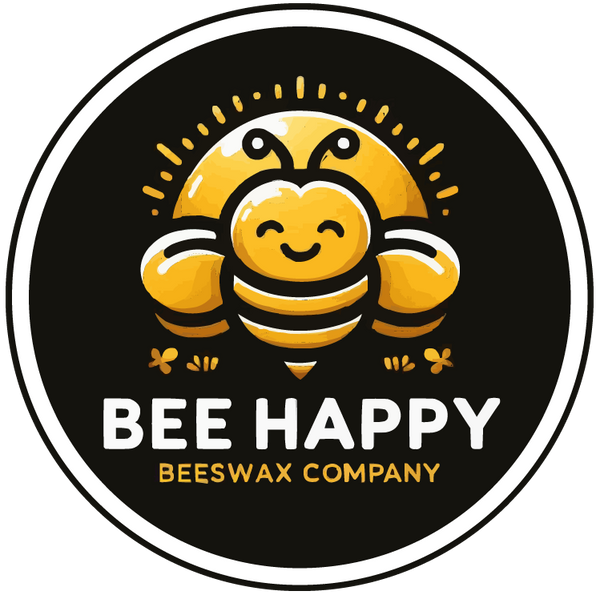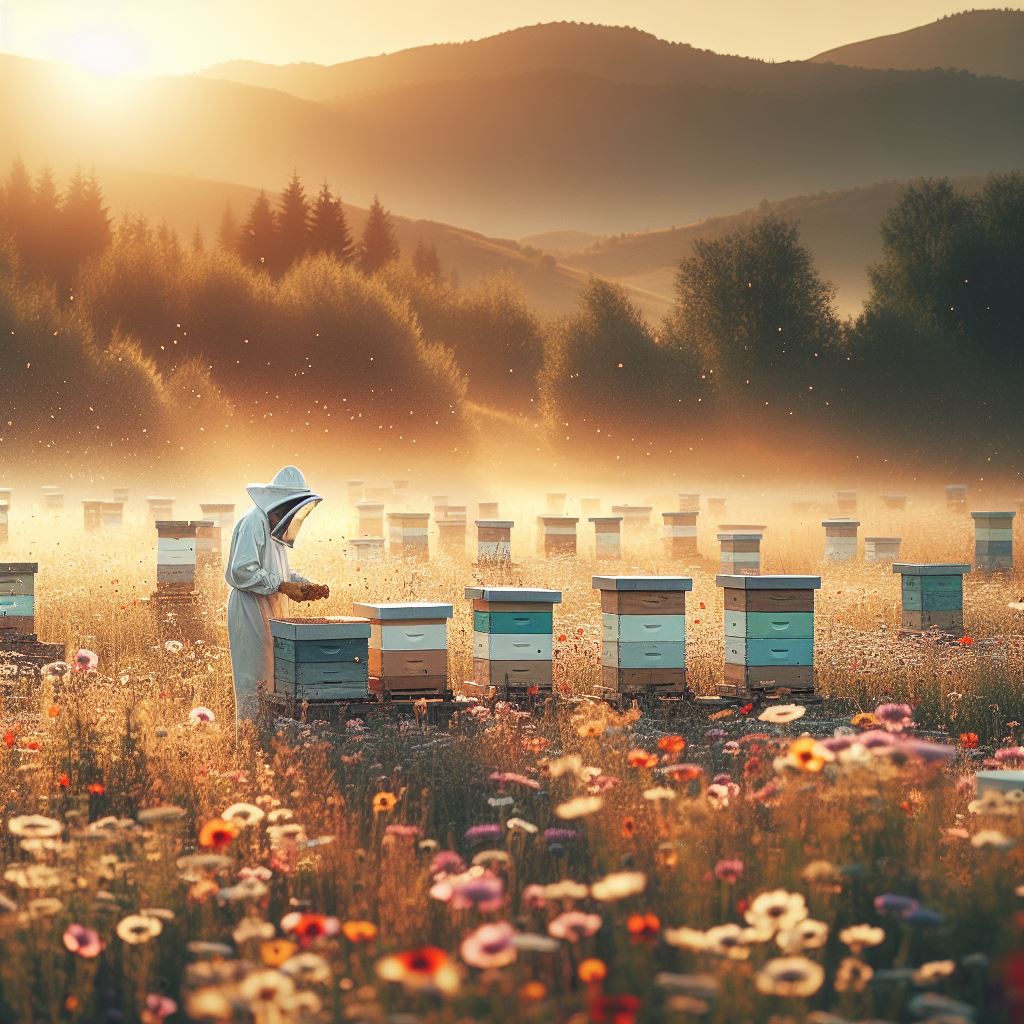1. The beautiful honey bee
Honey bees play a crucial role in our ecosystem, pollinating a significant portion of the world’s crops and contributing to biodiversity. However, in recent years, there has been a concerning phenomenon known as colony collapse disorder, where entire colonies of bees disappear and die off. This has raised alarm bells for scientists, farmers, and environmentalists, as the loss of honey bees could have devastating consequences for food production and the environment. The Bee Happy Beeswax Company is dedicated to raising awareness about this issue and promoting actions that individuals and communities can take to make a difference.
In this blog, we will explore the vital role of honey bees, delve into the causes and effects of colony collapse disorder, and provide practical tips on how you can support healthy bee populations. Together, we can help protect these invaluable pollinators and ensure a sustainable future for our planet.
2. The importance of honey bees in our ecosystem
Honey bees are not just tiny insects buzzing around flowers; they are incredibly vital to our ecosystem. Their role as pollinators is crucial for the reproduction of many plants, including fruits, vegetables, nuts, and even some oilseeds. In fact, one-third of the global food supply depends on pollinators like honey bees. Without them, we would see a drastic decline in crop yields, leading to food shortages and significant economic impacts.
Beyond food production, honey bees also contribute to the biodiversity of our environment. By transferring pollen from one plant to another, they facilitate cross-pollination, which helps plants reproduce and diversify. This, in turn, supports the survival of various insect and animal species that depend on specific plants for food and shelter.
Furthermore, honey bees play a crucial role in sustaining natural habitats and preserving wildflower populations. As they move from flower to flower, they inadvertently disperse plant seeds, aiding in the spread and growth of new vegetation. This process helps maintain the balance and resilience of ecosystems, benefiting countless organisms.
The declining population of honey bees due to colony collapse disorder poses a significant threat to food production, biodiversity, and ecological balance. In the next section, we will delve deeper into the causes and effects of colony collapse disorder and examine the alarming implications it holds for our planet. Stay tuned to learn how you can actively contribute to combating this issue and protecting honey bees for generations to come.
3. Understanding colony collapse disorder
Colony collapse disorder (CCD) is a phenomenon that has been causing a rapid decline in honey bee populations worldwide. While the exact cause of CCD is still not fully understood, researchers have identified several factors that contribute to this alarming issue.
Pesticides, particularly neonicotinoids, have been linked to CCD. These chemicals, commonly used in agriculture, can weaken the immune systems of honey bees and make them more susceptible to diseases and parasites. The destruction of wild habitats and the loss of biodiversity also play a role in CCD, as honey bees rely on a diverse range of plants for their nutrition.
The effects of CCD are far-reaching. Beyond the implications for food production, the decline in honey bee populations can disrupt entire ecosystems. This can lead to a decline in plant diversity, which affects other pollinators and wildlife that rely on specific plants for survival.
In the upcoming sections, we will explore the ways in which you can make a difference and help protect honey bees from the threats of colony collapse disorder. By taking small actions in your own life and supporting organizations working to address this issue, we can collectively build a safer and more sustainable future for honey bees and our planet as a whole. Stay tuned for actionable steps you can take to be a part of the solution.
4. The devastating impact of colony collapse disorder
Colony collapse disorder (CCD) not only affects honey bee populations but also has a devastating impact on our environment and food production systems. The decline in honey bee populations disrupts the delicate balance of ecosystems, leading to a decline in plant diversity. As honey bees are essential pollinators, this reduction in pollination can directly affect the availability of fruits, vegetables, and nuts.
The consequences of CCD extend beyond the loss of food sources. The decline in honey bee populations also impacts other pollinators and wildlife that depend on specific plants for their survival. This disruption in the natural order can have a cascading effect, leading to ecological imbalances and potential habitat loss.
Understanding the far-reaching effects of CCD highlights the urgency of addressing this issue. In the following sections, we will discuss practical steps you can take to help protect honey bees and combat colony collapse disorder. By joining hands and making conscious choices, we can work towards creating a more sustainable and bee-friendly future.
5. Actions you can take to help honey bees
Now that we have a clear understanding of the devastating consequences of colony collapse disorder (CCD), it's time to talk about the proactive steps you can take to make a difference. Even small actions can have a significant impact on honey bee populations and help combat CCD.
1. Create a bee-friendly garden: Planting a variety of native flowers and shrubs will provide honey bees with a diverse source of nectar and pollen. Avoid using pesticides or opt for organic alternatives to ensure the safety of bees.
2. Support local beekeepers: Purchase raw honey and other bee products from local beekeepers. By supporting their businesses, you contribute to the preservation of honey bee colonies and sustainable beekeeping practices.
3. Educate others: Spread awareness about the vital role of honey bees and the threats they face. Share information through social media, organize workshops, or give presentations at schools and community events.
4. Get involved: Join organizations and initiatives that focus on honey bee conservation. Volunteer at local beekeeping associations or participate in citizen science projects that monitor and research honey bee populations.
By taking these actions and encouraging others to do the same, we can make a collective effort to protect honey bees and ensure the continued pollination required for a healthy environment and food system. So, let's get buzzing and make a difference together!
6. Supporting local beekeepers and honey bee conservation organizations
Supporting local beekeepers and honey bee conservation organizations is crucial in making a difference and combating colony collapse disorder (CCD). When you purchase raw honey and other bee products from local beekeepers, you not only support their businesses but also contribute to the preservation of honey bee colonies and sustainable beekeeping practices.
Additionally, consider getting involved in organizations and initiatives that focus on honey bee conservation. By volunteering at local beekeeping associations or participating in citizen science projects that monitor and research honey bee populations, you actively contribute to the knowledge and efforts needed to address CCD.
Supporting local beekeepers and participating in honey bee conservation organizations are powerful ways to protect honey bees and ensure the continued pollination required for a healthy environment and food system. Together, let's make a positive impact and support these fundamental pollinators.
7. Spreading awareness and educating others about the vital role of honey bees
One of the most effective ways you can make a difference in the fight against colony collapse disorder (CCD) is by spreading awareness and educating others about the vital role of honey bees. Many people are not aware of the critical role honey bees play in our environment and food system, and the threats they face.
Start by discussing the importance of honey bees with your friends, family, and colleagues. Share informative articles, videos, or documentaries that highlight the impact of honey bees on pollination and food production. Encourage them to support local beekeepers and honey bee conservation organizations.
You can also consider organizing educational events or workshops in your community, where experts can share their knowledge on honey bee conservation and provide practical tips on how individuals can contribute to their preservation.
Remember, every conversation and educational effort can have a ripple effect and inspire others to take action. By spreading awareness, you are not only helping to protect honey bees but also creating a community of informed individuals working towards a common goal.
8. Together, we can make a difference in saving these essential pollinators
In conclusion, it is evident that honey bees play a vital role in our environment and food system, and it is crucial for us to take action to protect them. By spreading awareness and educating others about their importance, we can begin to make a difference in the fight against colony collapse disorder (CCD).
Remember that every conversation you have with your friends, family, and colleagues, every article or video you share, and every educational event you organize can have a ripple effect. By inspiring others to join our cause, we create a community of informed individuals working towards a common goal.
Together, we can support local beekeepers, honey bee conservation organizations, and make small changes in our daily lives to contribute to the preservation of honey bees. Let us join hands and make a lasting impact on the future of these essential pollinators.

